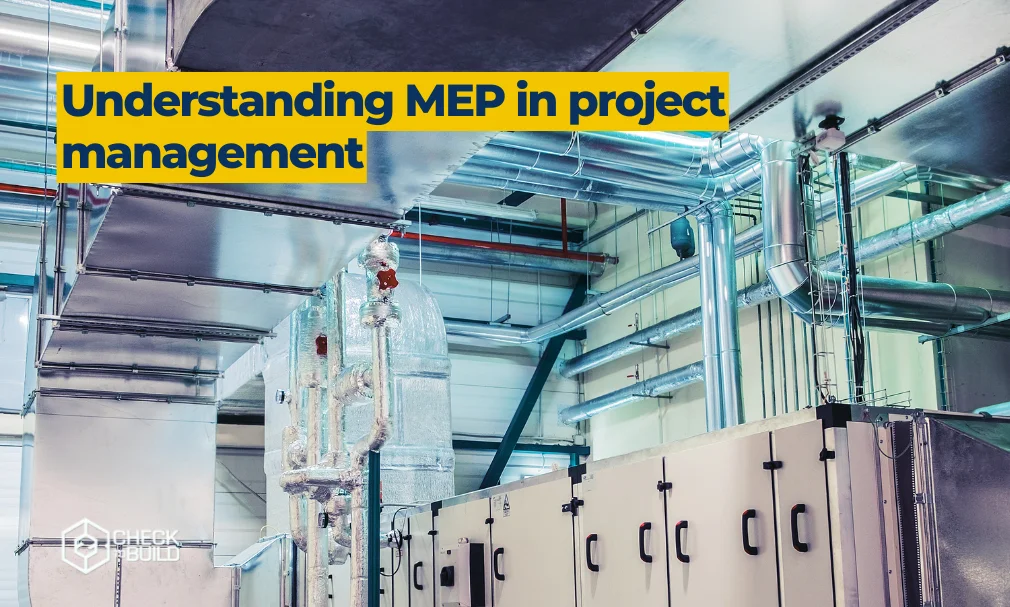What is MEP in project management?
MEP in project management refers to Mechanical, Electrical, and Plumbing systems. In this context, a MEP Systems Manager oversees these critical components throughout the project lifecycle, managing aspects such as budget, quality, system design coordination, scheduling, installation, and commissioning. Acting as a liaison between architects/engineers and general contractors, they ensure smooth communication and collaboration from design to project close-out.
MEP Systems Managers possess a deep understanding of complex systems and effectively communicate details to stakeholders. They bridge the gap between engineers’ technical expertise and contractors’ practical needs during installation, serving as negotiators to resolve conflicts between contractors and subcontractors regarding system installations.
Their role extends to project close-out, where they assist with commissioning by inspecting equipment installation and functionality before the Commissioning Agent arrives, minimizing issues during the commissioning process.
Understanding the synergy of MEP Systems is crucial for green building design. The seamless integration of these systems ensures a synchronized approach to energy management, indoor environmental quality, and resource conservation.
Mechanical Systems, including HVAC and refrigeration, control temperature, humidity, and air quality. Electrical Systems handle power distribution, lighting, and fire alarm and detection systems for occupant safety. Plumbing Systems manage water supply and distribution, sanitary and waste disposal, and stormwater drainage, ensuring reliability and functionality in the built environment.
The Importance of MEP projects
The importance of MEP projects lies in their fundamental role in ensuring the success and effectiveness of constructions, especially in Design/Build and Design/Bid/Build projects. These projects focus on managing mechanical, electrical, and plumbing components, which are essential for the functioning and comfort of any structure.
A key aspect is the proper management of these systems throughout the project lifecycle. MEP Systems Managers play a crucial role in coordinating the design, installation, and commissioning of these systems, ensuring their quality and compliance within the established budget and schedule.
Moreover, the presence of an MEP Systems Manager facilitates effective communication among architects, engineers, and general contractors, improving collaboration and helping to resolve conflicts in a timely manner. This leads to more effective solutions and ultimately to the successful completion of the project.
In summary, MEP projects are critical for the development of quality and functional constructions, and proper management of these systems is essential to ensure their success. The presence of an MEP Systems Manager significantly contributes to the efficiency and effectiveness of these projects, while ensuring compliance with client requirements and applicable regulations.
What are the problems with MEP coordination
The problems with MEP coordination in the construction industry are multifaceted and can significantly impact project success. One major challenge stems from the rapid pace of technological advancements, particularly with the widespread adoption of Building Information Modeling (BIM) for system design. Keeping up with these technological developments requires continuous learning and adaptation by engineers and consultants, which can be a daunting task.
Another significant issue is the struggle to stay within project budgets. Property owners often seek to minimize costs, leading to pressure on MEP consultants to deliver cost-effective solutions without compromising quality. This balancing act requires careful planning, resource allocation, and effective cost management strategies throughout the project lifecycle.
Furthermore, adherence to quality standards and codes is imperative for the successful implementation of MEP systems. Failure to comply with these standards can result in safety hazards, legal issues, and costly rework. Therefore, MEP engineers and consultants must stay updated on the latest regulations and best practices to ensure compliance throughout the project.
The problems with MEP coordination highlight the complexities and challenges inherent in the construction industry. By addressing issues related to technology, budget constraints, communication, compatibility, and quality compliance, project teams can enhance efficiency, minimize risks, and ultimately deliver successful MEP projects.
5 challenges for MEP projects
MEP (Mechanical, Electrical, and Plumbing) projects in the construction industry face various challenges that can impact their success. From coordination issues to budget constraints, navigating these challenges requires careful planning and innovative solutions. In this overview, we’ll explore five key challenges faced by MEP projects and discuss potential solutions to address them effectively.
Coordination Issues:
MEP projects often face coordination challenges due to the intricate integration required among mechanical, electrical, and plumbing systems. Each of these systems operates independently yet must seamlessly work together within the confines of a building structure. The complexity of coordinating these systems increases the likelihood of clashes and conflicts during the design and construction phases. When coordination is lacking, it can result in costly rework, delays in project timelines, and even compromised functionality of the building’s systems. Therefore, ensuring effective coordination among MEP components is crucial to the success of the project, requiring meticulous planning, communication, and collaboration among all project stakeholders.
Energy Efficiency Demands:
Meeting sustainability and energy efficiency requirements is becoming increasingly critical for MEP engineers. With growing concerns about environmental impact and rising energy costs, there is a heightened emphasis on designing MEP systems that minimize energy consumption without compromising performance. This task is particularly challenging in existing buildings with outdated systems, where retrofitting energy-efficient solutions can be complex and costly. Balancing the need for energy efficiency with the practical constraints of existing infrastructure requires innovative design approaches, careful consideration of retrofit options, and integration of advanced technologies to optimize energy usage while maintaining system functionality.
Rapidly Advancing Technology:
The rapid evolution of technology poses a significant challenge for MEP engineers, necessitating their continuous learning and adaptation to stay abreast of the latest advancements. With new technologies emerging frequently in the field of building systems and construction, MEP engineers must proactively seek opportunities for professional development and training. Understanding the practical applications of these advancements is crucial for effectively integrating them into MEP projects, enhancing efficiency, performance, and sustainability. Therefore, staying updated with the latest trends and innovations in technology is essential for MEP engineers to remain competitive and deliver cutting-edge solutions to clients.
Budget Constraints:
Balancing cutting-edge technologies and energy-efficient systems with budget limitations is a common challenge in MEP projects. As advancements in technology continue to drive innovation in building systems, there is a growing demand for state-of-the-art solutions that optimize energy usage and enhance performance. However, integrating these advanced technologies into MEP projects often comes with significant costs, which may exceed the allocated budget for the project. This creates a dilemma for project stakeholders, who must weigh the benefits of investing in advanced systems against the financial constraints of the project. Finding the right balance between adopting cutting-edge technologies and staying within budget limitations requires careful planning, strategic decision-making, and creative problem-solving throughout the project lifecycle.
Building Code Compliance:
Adhering to building codes and regulations is paramount for ensuring project safety and compliance with legal requirements. However, navigating the complexities of building codes and staying updated with regulatory changes can pose significant challenges for MEP engineers and project teams. Interpretation of codes requires careful attention to detail and an understanding of how they apply to specific project scenarios. Moreover, regulatory updates and amendments can occur frequently, requiring continuous monitoring and adaptation to remain compliant. To address these challenges, MEP engineers must engage in ongoing education, maintain open communication with regulatory authorities, and leverage resources such as industry associations and professional networks to stay informed about relevant codes and regulations. By prioritizing compliance and staying proactive in monitoring regulatory changes, MEP engineers can mitigate risks and ensure project success.

